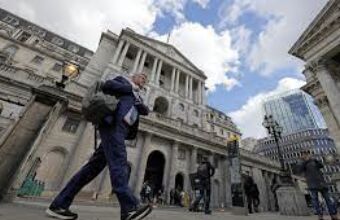UK Inflation Holds Steady at 6.7%, Disappointing Economists and Posing Challenges for Homeowners
The UK's inflation rate holds steady at 6.7%, disappointing economists who expected a decline. Despite this, the Bank of England is unlikely to raise interest rates.
Inflation in the UK held steady at 6.7 percent in September, according to official figures released by the Office for National Statistics. This flat reading was disappointing to economists who had predicted a modest fall, and it means that the UK's inflation rate remains more than three times higher than the Bank of England's target rate of 2 percent. Despite this, the Bank of England is not expected to raise interest rates at its next policy meeting, choosing to keep its main borrowing rate unchanged at the 15-year high of 5.25 percent.
Yet again the UK has the highest inflation in the G7. A year after Truss, the Tories are still the biggest threat to the economy
— Chris Bryant (@RhonddaBryant) October 18, 2023
UK inflation unexpectedly holds steady at 6.7% amid rising fuel prices https://t.co/7kPoSGo1fQ
The stabilization of inflation comes after the bank brought an end to nearly two years of interest rate rises last month, as inflation fell from multi-decade highs above 11 percent. However, economists still expect a significant decline in inflation next month, with James Smith, research director at the Resolution Foundation think tank, stating that "progress on falling inflation has stalled, for one month at least." Smith believes that inflation will fall sharply next month to below 5 percent, as energy prices decrease for most people.
The Bank of England, like other central banks, has aggressively raised interest rates in recent years to combat rising prices caused by supply chain issues during the pandemic and the impact of Russia's invasion of Ukraine, which led to increased food and energy costs. Higher interest rates cool the economy by making borrowing more expensive, which helps to bring down inflation. While most economies have managed to avoid recession, there are concerns that the British economy could see output shrinking in the coming months, which is not ideal for the governing Conservative Party ahead of a general election.
The UK currently has the highest inflation rate among the G7 leading industrial economies, with the US's rate standing at 3.7 percent. Some economists attribute this to Britain's departure from the European Union, which has caused worker shortages in certain sectors and trade frictions, leading to increased costs for businesses. The steady inflation reading may raise concerns among homeowners, as it suggests that rates will remain higher for longer.
There is a lag between actual rate hikes and mortgage rates, meaning that many homeowners and renters have yet to see increases in their housing costs. Unlike in the US, where homeowners typically lock in mortgage rates for several years, most homeowners in the UK only have fixed-rate deals for a few years. Those whose deals are set to expire soon are aware that they may face much higher borrowing costs due to the significant rise in interest rates over the past couple of years.




